Clinical Research & Trials
Lake Medical Imaging’s radiologists are committed to staying on the forefront of diagnostic and interventional imaging. To do so, they engage in investigating new approaches to diagnosing and treating diseases and conditions through clinical or research trials.
The FDA requires that clinical-trial participants are treated with a very high standard of care and that safety is always the highest priority. All trials are overseen by the Institutional Review Board (IRB) to ensure the highest ethical standards are also maintained
Lake Medical Imaging is among ACR partners to launch CMIST screening trial of contrast-enhanced mammography for women with dense breasts
Lake Medical Imaging has been selected to participate in the American College of Radiology (ACR) Contrast Enhanced Mammography Imaging Screening Trial (CMIST) in collaboration with the Breast Cancer Research Foundation (BCRF) and GE Healthcare. The trial seeks to determine whether contrast-enhanced mammography (CEM) improves breast cancer detection and reduces false positive exams in women with dense breasts.
CEM combines mammography and vascular-based screening methods in a simple and quick procedure to highlight areas of unusual blood flow patterns that may indicate malignancy.
Specifically, CMIST seeks to determine if CEM is more accurate in detecting breast cancer compared to digital breast tomosynthesis in women with dense breasts. One of the goals of the study of contrast mammography is the potential to develop more individualized breast imaging strategies for women with dense breasts, which ACR reports represents 43 percent of women aged 40 to 72.
This is a well-timed study, given the US Food and Drug Administration’s recent letter to U.S. Congresswoman Rosa DeLauro that the agency expects to finalize its breast density notification rules by year end 2022 or early next year. As a result, more women will be made aware of their breast density status — a good outcome.
Important FDA-approved studies we have also participated in include:
Amyloid PET Studies for dementia – Lake Medical Imaging was part of a select group studying the effectiveness of Amyloid PET imaging for the diagnosis of Alzheimer’s Disease, and was the largest provider of images for the study in the U.S.
Diagnosing Alzheimer’s is complex. With no single test currently available, diagnosis is based on an individual’s history, physical examination, and cognitive testing. Amyloid PET imaging represents a potential major advance in the assessment of those with cognitive impairment. The scan visualizes plaques present in the brain, which are prime suspects in damaging and killing nerve cells in those who have Alzheimer’s. Before amyloid PET, these plaques could only be detected by examining the brain at autopsy.
DAT Scan – Nuclear medicine study for Parkinson’s – Lake Medical Imaging was the first facility in Florida to offer DaTscan: a Nuclear Medicine test that helps physicians determine if a patient may have a Parkinsonian syndrome (PS), such as Parkinson’s Disease (PD).
DaTscan is a radiopharmaceutical that is administered prior to a SPECT (single-photon emission computed tomography) scan to help a radiologist detect if there is degeneration of dopamine transporters in the brain. These dopamine containing neurons are involved in controlling movement.
Parkinsonian syndromes occur when certain neurons of the brain undergo degeneration. The DaTscan study was primarily designed to differentiate Parkinsonian syndrome from a relatively benign condition called essential tremor. Essential tremor results in a noticeable tremor which may mimic the Parkinsonian Syndrome. DaTscan is now FDA approved to differentiate between essential tremor and Parkinsonian syndrome.
Patients interested in finding out whether this test could give them the answers they seek should ask their neurologist or primary care provider if a DaTscan is right for them.
Genetic Testing through Ambry Genetics – In addition to Clinical Trials, Lake Medical Imaging offers genetic testing. It is estimated that 5-10% of all cancer is hereditary – that is, those who have the gene mutations that cause these cancers were born with them. Early detection is a key factor in reducing risk in those who are predisposed to hereditary cancers.
We are now offering screening for hereditary breast, prostate, ovarian, colorectal, uterine, stomach, pancreatic and melanoma cancers, to anyone who is concerned that their personal or family history creates an increased risk of genetic mutations that can cause hereditary cancers.
This screening gives clinicians a clearer, more precise way to identify and manage hereditary cancers. It also gives patients information they need to become more active partners in their own care.
Other Research
MRI studies for knees – Lake Medical Imaging has performed the imaging needed to help improve and test certain prosthetic knee replacements.
UF Health
Lake Medical Imaging will also welcome opportunities to engage with UF Health in upcoming clinical research trials.
We will post to our website any new studies as they become available. If you have an interest in participating in our clinical trials please complete the form below.
Clinical Research and Trials
If you’re interested in clinical trials with Lake Medical Imaging please complete the form below:
Information
(352) 787-5858
Scheduling
(352) 365-0777
Toll-free
(866) 365-0777
Scheduling Fax
(352) 787-4655




